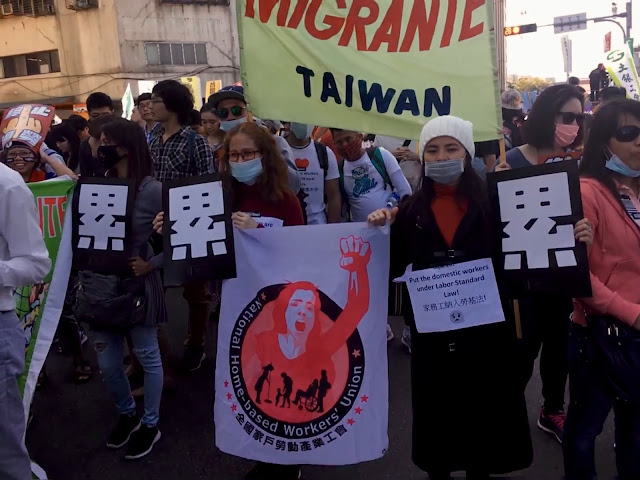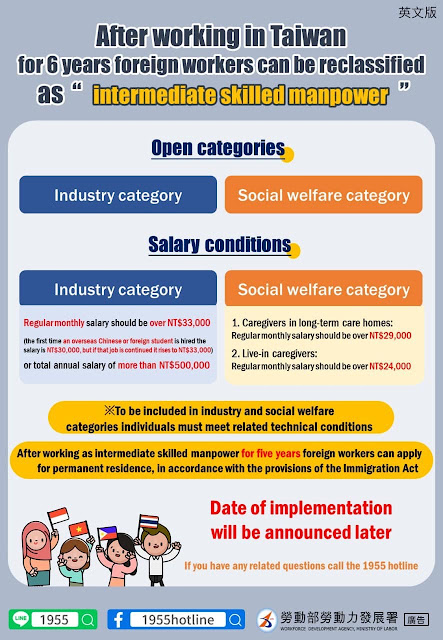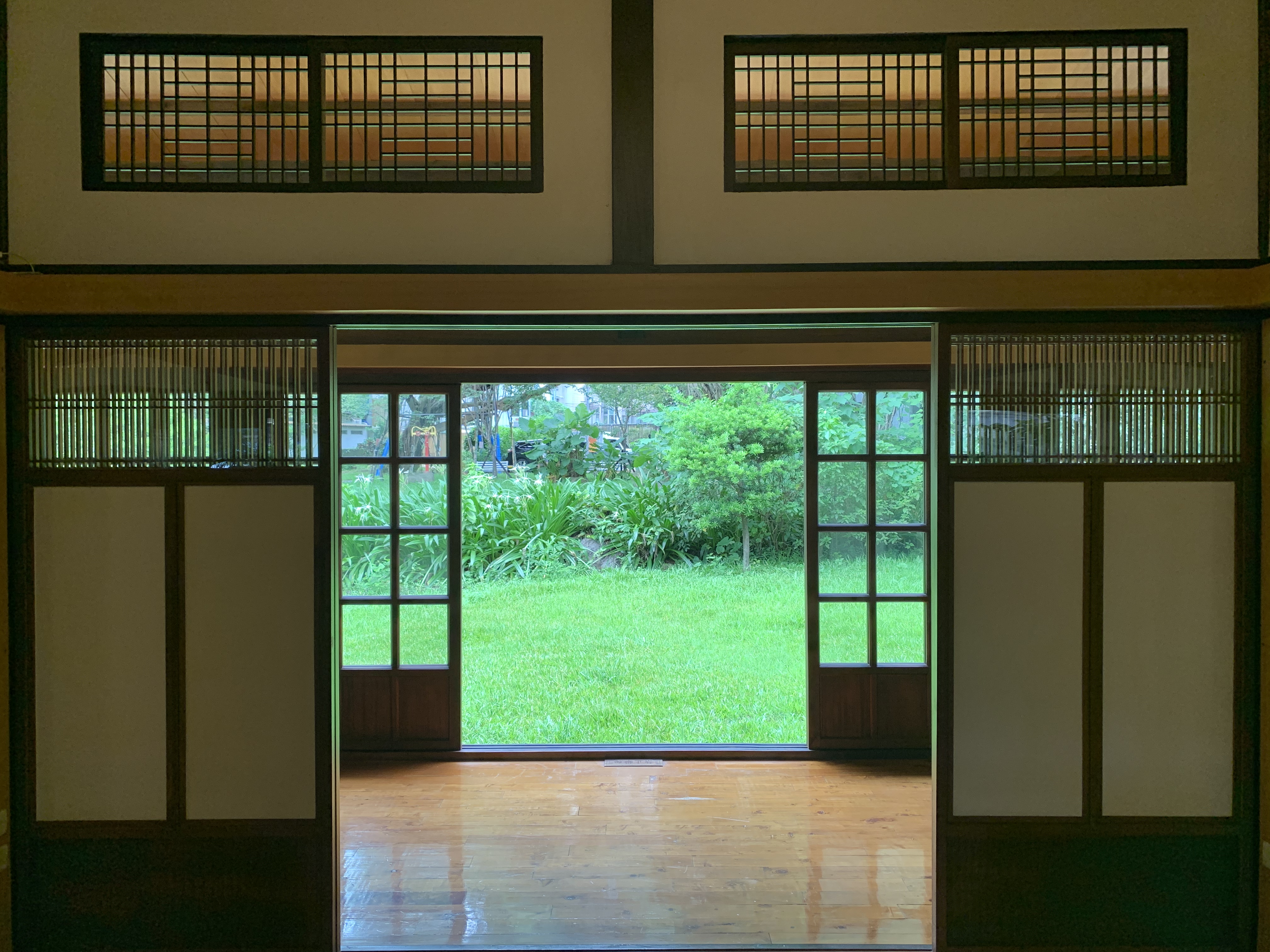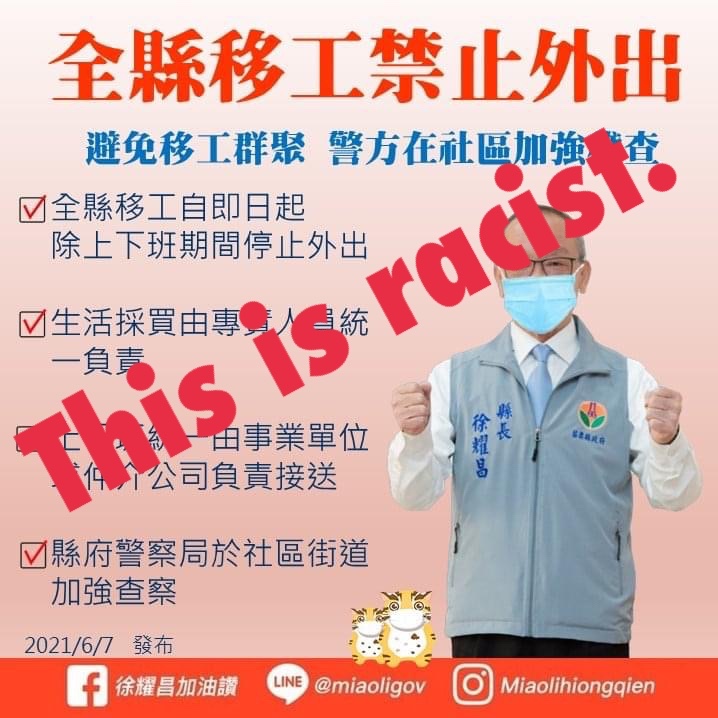When I first moved to Taiwan, I didn't have a lot of free time. Like most buxibans, my first workplace expected six-day work weeks. A coworker rightly described this sort of job as "not really being teachers, it's the education industry equivalent of working at The Gap." He wasn't wrong.
The only real upside was public holidays: on those preposterous work/school "make up days", we didn't have Saturday classes. Feeling a bit trapped in Taipei -- you can't really do much when you work six days a week -- I decided to use one of these to check out Taroko Gorge.
I did this with the wisdom and forethought of a turnip. I used none of my intelligence in applying my experiences in China to my expectations for Taiwan. Namely, that one can turn up close to a destination and pay someone a small amount of money to just take you there. So, instead of getting off the train at Hualien and taking the bus through the gorge like any other young person on a budget, I hopped off at Xincheng because it's geographically much closer to Taroko.
I found no transport and walked -- walked! -- the several kilometers to the park entrance. I even walked most of the Shakadang Trail. Realizing my mistake, I then grabbed the bus to Hualien and got a bed in a hostel, having seen almost none of the actual gorge. I did get a very nice view of Asia Cement's, um, cement garden. Local children laughed at me. I deserved it.
Years later, I told students what I’d done. They laughed at me too. I still deserved it.
“Never do this!” I said.
“We never would,” one of them shot back.
On my next trip, we hired a taxi. I wanted to go to the Qingshui cliffs in addition to Taroko, but he wouldn't take us. My Mandarin wasn't good enough yet to really communicate much. It rained, and I had a headache. On the third trip, I rented a car with friends and for whatever reason we ended up driving over the North Cross-Island Highway first (don't ask). It was gorgeous, but we were too tired the next day to truly appreciate the beauty of our actual destination. We picked out a random local hotel with terrible beds and thin walls; someone was having a great time spanking their boyfriend in the next room. Good for them, but not fun for us.
We drove back, in the rain, over the cliffs but it was getting late and we didn't really get to appreciate those, either.
Years later, despite all that bad luck, I wanted to take my in-laws. They'd been to Taiwan a few times but never really gotten to see the country's natural beauty. So we bought tickets -- to Hualien this time -- on the Puyuma Express and I hired a private driver through KKDay who promised to include the cliffs. I asked local friends for a hotel recommendation, and booked Just Sleep. We had a marvelous time, and I was able to manage the family trip in Mandarin with no issue. I was able to replicate this travel itinerary with my sister years later. This time, our KKDay-booked driver was named Bread. Not Brad (I asked). He wanted the universe to fill his life with bread, he explained.
This little walk through time is metaphorically related to what I want to say, but I'll let you decide on exactly how.
But here is where it begins: while my sister and I gazed up at those impossibly steep marble walls, I reflected on all the criticism I’ve heard recently about Taiwan.
The traffic is horrible. Raising a family in Taiwan’s drudgery-heavy work culture is so impossible that many people either aren’t doing it, or have moved abroad. Salaries are too low. The banking system has long been the subject of mockery. There is no real path to citizenship for most of us permanent folks.
Friends complain (quite rightly) that “make-up days” for extra days off are ridiculous; Taiwanese people already have some of the longest working hours in the world — just give them the day off! Even my sister, who used to live here, said that she left initially because she felt she’d “outgrown” Taipei. What she seems to have meant was that there were no useful career opportunities, and that meant it was time to go.
Worst of all, I remember watching coverage of abuses against migrant workers in Qatar preceding the World Cup and couldn't help but think, the system we're all pointing fingers at there doesn't sound much different from what goes on in Taiwan. It's a glaring issue, and the main systematic problem that makes it impossible to say that Taiwan is a wholly wonderful country.
I considered all of the upcoming critical posts that I haven’t written yet. They’re pretty diverse — one discusses the new and absolutely hellish system for sending packages abroad. Another is more personal, about health issues I’ve been facing that are somewhat related to my reduced blogging output.
Is Taiwan really that bad? I thought. Is it so horrible that people are pushing to get out, and nothing works as it should?
It’s difficult to accept this, even when the various criticisms are either correct, or debatable but not wrong per se. Traffic problems really don’t compare well to, say, Japan. The banking system is indeed archaic; I’m unlikely to ever be a homeowner because I’m seen as more of a flight risk than some rich Taiwanese asshole who actually would flee the country to avoid debt. Like I could do that! I’ll probably never be a citizen and am not satisfied with “change is slow” explanations. Salaries are low. Work culture is unacceptable. People do leave. Career opportunities are not particularly robust. Even as a teacher — the easiest career path for an English L1 user — I could make more in many other countries in Asia. I stay in Taiwan because I want to be in Taiwan.
But then I look up again at all that beauty and have a hard time accepting that it really is that bad. Of course, I’m not Taiwanese and I’ll never know what it’s like to live here as a local. The closest I’ll ever get is an approximation as a person with a middle-class income (and no local support beyond the friends I’ve made).
Despite issues surrounding citizenship and securing the basics of a normal middle class life — like, say, a mortgage — it’s hard to argue that Taiwan has been bad. I can’t imagine I ever would have become a teacher, let alone a teacher trainer, in the US. In Taiwan I’ve built a career I’m happy with, enjoyed a wonderful marriage, made good friends both local and foreign, and had the opportunity to travel extensively.
Of course, as a foreigner, I can never say that’s the whole story. There’s surely some selection bias, but local friends and students have also expressed a love for Taiwan that’s impervious to criticism. Life is more affordable here than Singapore or Japan, they say. Some have lived in China for a stint, or spent extensive time there for business. It sucks, they say. Taiwan is so much better. No one harasses you for being Taiwanese or not wanting to be part of China. They ask how Americans cope with our garbage “health care system”.
“We mostly don’t,” I say. “Basically either you’re lucky or you die too soon.”
They ask how we cope with Gun Culture.
“We mostly don’t,” I repeat. “If you’re white you’re probably fine. Otherwise every day, every traffic stop, every public festival, is a gamble.”
“Yikes,” they reply. They’re right.
Compared to China’s authoritarianism, Japan’s sexism, Singapore’s cost of living, and America’s various dangers, unruly traffic just…doesn’t seem that bad? The banking system is annoying but not life-destroying. I don’t know what to say about low pay and horrendous work culture. But it’s not like other countries are problem-free. Most say they have no real desire to leave Taiwan. It’s not perfect but it’s a pretty good place to live, they insist. They don’t think it’s puzzling that I’d leave the US and decide to live here.
That said, it’s not as though the criticisms are incorrect. Every last one makes a salient point.
And yet, despite all this plus my own personal criticisms, I just can’t bring myself to spend all day slamming Taiwan. I visit other countries, including the country of my birth, and in most ways, Taiwan compares favorably. Occasionally I land in other cities that, in another life, I might have considered home. Istanbul was glorious (but as an Armenian, I’m just not sure how I’d feel about it long-term). I’m writing this from Mexico City. I could live here, but ultimately I know I won’t leave Taiwan.
Why? Seriously, why, despite all the valid criticism? Well, I often get asked why I came to Taiwan, and I can’t answer that. I was curious, and not planning to live there forever. That changed, and I can answer why I chose to stay.
My ideal home would have a few key points in its favor: it has to be a democracy with basic human rights enshrined in law (I understand that no country on earth makes these rights perfectly accessible). I tried living in a country that lacked this -- China -- and it turned out to be untenable. Taiwan isn’t perfect in this regard (no country in the world is), but it's on a trajectory of progress.
I also want to feel comfortable as a woman. All countries struggle with endemic sexism, but compared to the rest of Asia, Taiwan offers pretty solid women's equality.
Health care is important too; I left the US in part because I didn't want to wake up one day and find out The Machine decided I was too poor and deserved to die.
I want to live in what might typically be called an advanced or developed country (I don’t think a politically correct way of expressing this exists). Maybe I’m a bit of a princess, but I do want to live somewhere where things generally work.
And, of course, I want to live in a country that is at least making progress toward liberal ideals. I don't think any country has actually gotten there yet, but again, compared to the rest of Asia, Taiwan is doing alright.
Taiwan checks all those boxes. It’s not perfect, but it’s not the screaming shithole many portray it to be. And over the years, as my local competencies have improved, and my understanding of Taiwan increased, I feel far more affection for the country than dislike. That’s true even when I have sincere criticisms.
Back in the early 20th century, my problematic fave described her first view of Taiwan:
Formosa, that little-known island in the typhoon-infested South China Sea, so well called by its early Portuguese discoverers - as its name implies - "the beautiful". Indeed, it was the beauty of Formosa that first attracted me....I shall never forget the first glimpse that I caught of the island as I passed it...there it lay, in the light of the tropical sunrise, glowing and shimmering like a great emerald, with an apparent vividness of green that I had never seen before, even in the tropics. During the greater part of the day it remained in sight, apparently floating slowly past - an emerald on a turquoise bed…
Most likely, she was off the coast not far from the gorge I was standing in when I began to think about all of this. After all, is there a more beautiful sight of the Taiwanese coast than the Qingshui cliffs?
It’s preposterous to dismiss valid criticisms of a country because, hey, there are some beautiful views! At the same time, it’s exactly those views that can make one feel ever so small compared to the ebb and flow of history.
Considering the ways Taiwan rose from inheriting mostly disadvantages, told one authoritarian government to get bent, is now refusing to bend to another, and still managed to (more or less) get rich with (again, more or less) low wealth inequality, it's hard to declare that it's really so awful.
I want to except human rights abuses against migrant workers here, as there is simply no excusing that. Everything else is as terrible as it is valid, but I have a hard time thinking of a country that doesn't have problems that are equally horrifying, or worse. Like any other country, Taiwan isn't perfect or terrible; it's messy and complicated and difficult to put into words.
Of course I'd say all this: I chose Taiwan, and choose it every day I wake up in Taipei. I wasn't born here, and a big chunk of my life is steeped in white privilege. Theoretically, I could leave.
But then my local friends run businesses, cultivate interests, fall in love, get married and have children here. Plenty of people I know have left for a time to study or work, but I rarely meet people who want to build a whole new permanent life abroad. They seem more proud of Taiwan's success than they are interested in bashing it.
That doesn't mean there's no need to address the problems that do exist, just that Taiwan simply isn't an intractable garbage heap.
In other words, maybe Taiwan isn't always great, but it isn't all bad, either.















